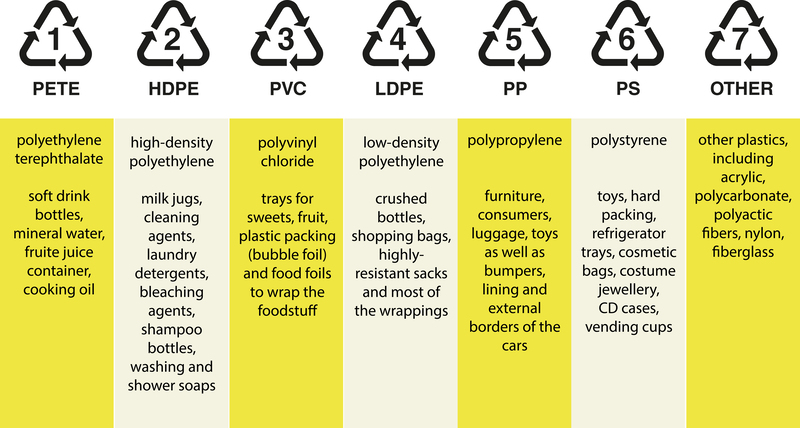How to Avoid High Fees for Disposing Bulky Waste Items
Bulky waste items like furniture, appliances, mattresses, and large electronics can be a headache to get rid of responsibly. Many local authorities and private companies charge significant fees for the collection and disposal of such items. But with some smart planning, eco-friendly alternatives, and a little effort, you can avoid high fees for disposing bulky waste items and even help the environment at the same time.
In this comprehensive guide, you'll discover budget-friendly ways to get rid of bulky waste, practical recycling tips, and ethical disposal methods--with step-by-step advice to make the process as smooth and cost-effective as possible.
Understanding Bulky Waste and Why Fees Are High
"Bulky waste" refers to large, heavy items that are not accepted through regular curbside garbage collection. These include:
- Old sofas, couches, and recliners
- Mattresses and bed frames
- Large appliances like refrigerators, washing machines, and ovens
- Carpets, rugs, and large rugs
- Broken bicycles, scrap metal, and garden equipment
Why does disposing of bulky waste cost so much?
Municipalities and private companies typically charge high fees for bulk waste disposal due to several reasons:
- Bulky items occupy more space in vehicles and landfill sites
- Special handling and equipment are required
- Some materials are difficult or expensive to recycle or dispose of safely (e.g., mattresses, electronics)
- Environmental regulations may mandate specific disposal or recycling processes
If you want to avoid incurring high costs for bulky waste removal, it's important to explore alternative solutions.

1. Donate Usable Items to Charity
One of the best ways to avoid disposal fees is to give your items a second life by donating them. Many charities and non-profit organizations accept gently used furniture and appliances. Some even offer free collection, saving you both time and money.
Top Places to Donate Bulky Items
- Habitat for Humanity ReStores: Accepts furniture, appliances, and building materials.
- Salvation Army and Goodwill: Check if your local branch accepts large items and offers pick-up services.
- Local shelters and community centers: Many accept beds, sofas, and electronics in good condition.
- Online local donation groups: Try Facebook Marketplace, Freecycle, or community groups where neighbors offer items for free.
Make sure your unwanted items are clean, safe, and in working condition. This method not only helps you reduce bulky waste disposal costs but also benefits those in need.
2. Host a Garage Sale or List Items Online
If your items are still in usable condition, why not try to sell them instead of paying for their removal? Hosting a garage sale or listing items on resale platforms can help you get rid of bulky junk without high fees and even earn some extra cash.
Popular Online Marketplaces for Bulky Items
- Craigslist: List items in the "For Sale" section for free with local pick-up.
- Facebook Marketplace: Connect instantly with local buyers.
- OfferUp and Letgo: User-friendly apps for selling large household goods.
- Nextdoor: Great for finding neighbors who might need your items.
Include clear photos and honest descriptions. Specify that the buyer must pick up the item, so you avoid both hauling and disposal fees.
3. Recycle Bulky Waste Responsibly
Many parts of bulky waste, such as metal frames, electronics, and certain plastics, are recyclable. Recycling is a cost-effective and eco-friendly alternative to landfill disposal.
How to Find Local Recycling Centers
- Check your city or county website: Most municipalities offer an online directory of recycling centers and what they accept.
- Earth911.com: Enter your ZIP code and the item to find nearby recycling locations.
- Contact appliance and electronics retailers: Many offer "take-back" programs for your old equipment when you buy new.
*Remember*: Many centers accept materials for free, while others may charge a nominal fee (far less than bulk item removal services).
4. Schedule Municipal Bulky Waste Collection Days
*Did you know?* Many cities offer special collection days for bulky waste, sometimes at little or no cost to residents. Checking in advance and waiting for these collection days can help you avoid bulky item removal charges.
How to Utilize City Bulky Waste Programs
- Review your city's garbage and recycling website for bulk trash pick-up schedules.
- Sign up in advance if required, as slots may fill quickly.
- Note any restrictions on accepted items or quantities.
- Follow instructions for preparing items for curbside collection (e.g., remove doors from appliances, separate recyclables).
With strategic timing, you can dispose of multiple items affordably (sometimes for free!), sidestepping high private hauling fees.
5. Share or Swap in Your Neighborhood
Community sharing programs make it easier than ever to avoid costly bulky waste disposal services. Before you pay, consider these creative alternatives:
- Organize a swap event: Invite friends and neighbors to exchange unwanted items.
- Leave items at the curb with a 'FREE' sign: If your local ordinances allow, many passersby might take items off your hands.
- Join neighborhood sharing platforms: Apps like Buy Nothing Project encourage giving and sharing.
By connecting with your community, you not only sidestep high fees for disposal of bulky items but also keep useful items out of the landfill.
6. DIY Junk Removal: Rent a Truck or Trailer
If you have several large items or a mix of bulky things to dispose of, hiring a junk removal company can quickly get pricey. Instead, you can save by handling the hauling yourself.
Steps for Affordable Self-Haul Bulky Waste Disposal
- Rent a truck or trailer: Many home improvement stores offer affordable rentals for a few hours or a day.
- Plan your drop-off route: Map out recycle centers, donation points, and the local landfill or transfer station.
- Gather help: Enlist friends or family to help with loading and unloading heavy items safely.
- Check local rules: Ensure you know the types of waste accepted at each facility, as some may require proof of residency or have special hours.
Tip: Some transfer stations charge by weight or per item, so the total cost can still be much less than arranging for private collection.
7. Break Down and Repurpose Bulky Items
Not all "bulky" items have to stay that way! If you're handy, you can disassemble large furniture or appliances and repurpose or recycle the parts.
- Reuse wood, metal, or fabric: Old headboards, frames, and even couch fabric can be transformed into DIY projects or used for repairs.
- Remove and recycle parts: Scrappers often pay for ferrous and non-ferrous metals, so dismantle appliances for their valuable components.
- Limit fees: Smaller pieces may qualify for regular waste pick-up or be easily transported to recycling centers.
By making your items more manageable, you reduce or eliminate bulky waste removal fees while also benefiting from recycling incentives.
8. Share Costs with Neighbors or Friends
Sometimes you can't avoid a disposal fee, but you can reduce it significantly by splitting the cost. Contact your neighbors to see if they have bulky waste to remove, then bundle everything into one trip or hire a junk removal company together.
- Group pickup: Most junk removal companies charge less per item when multiple bulky pieces are collected from the same location.
- Shared truck rental: Divide the cost of renting a moving vehicle to haul items to a disposal center.
- Bulk drop-off days: Coordinate with your community to rent dumpsters at a discount for neighborhood-wide cleanups.
Pooling resources is a practical, eco-friendly, and wallet-friendly way to avoid paying high fees for bulky waste disposal.
9. Check for Manufacturer or Retailer Take-Back Programs
Some companies help customers with responsible disposal of old products when you purchase a replacement. For example:
- Mattress retailers often partner with recycling facilities, and may collect your old mattress for free or a small fee.
- Large electronics and appliance stores may offer free haul-away of your old fridge, TV, or washing machine upon delivery of a new one.
- Specialized take-back schemes: Programs like Call2Recycle accept old batteries and electronics.
This approach helps you save on bulky item disposal and encourage proper recycling practices.
10. Avoid Illegal Dumping: The Costly Mistake
It may be tempting to save money by abandoning unwanted bulky items in alleys or vacant lots, but illegal dumping is not only unethical but also carries hefty fines--sometimes more than the cost of proper disposal.
- Fines can range from hundreds to thousands of dollars
- Illegal dumping harms local wildlife and the environment
- Abandoned items can pose safety risks in the community
Always choose a legal, responsible alternative to avoid financial and social consequences.
Summary: Best Practices for Affordable Bulky Waste Disposal
- Plan ahead and research all available city, retailer, and community programs.
- Donate, sell, or give away items in good condition wherever possible.
- Use municipal collection days or recycling centers to minimize fees.
- Break down large pieces to make hauling and disposal easier or cheaper.
- Join forces with friends or neighbors to cut costs.
- Avoid illegal dumping at all costs!
By following these strategies, you can avoid high fees for disposing bulky waste items while reducing your environmental impact and supporting your local community.

Frequently Asked Questions (FAQ) About Bulky Waste Disposal
What counts as a bulky waste item?
Common bulky waste includes furniture, large appliances, mattresses, carpets, and oversized yard waste--basically anything too big for regular curbside trash.
Can I leave bulky items at the curb?
Only if your local services specifically allow it--otherwise you risk a fine for illegal dumping. Always check city guidelines.
Are there free ways to dispose of bulky items?
Yes! Municipal collection events, local recycling centers, donation pick-ups, and community sharing groups often provide free or low-cost options.
What should I do with large electronics?
Bring them to specialized e-waste recycling centers, or ask electronics retailers if they offer a take-back program.
Conclusion: Cut Costs and Make a Difference
Disposing of bulky waste items doesn't have to break the bank. With a combination of savvy research, creative reuse, and leveraging local programs, you can significantly reduce or even eliminate high fees for bulky waste disposal. Not only will you save money, but you'll also protect the environment and contribute positively to your community.
Start planning your bulky waste removal today and choose the responsible, affordable path!
